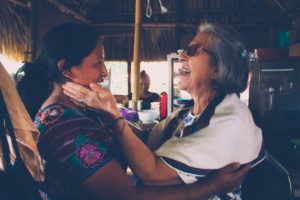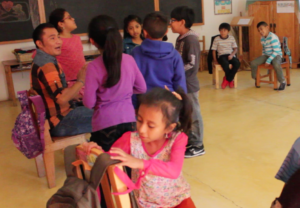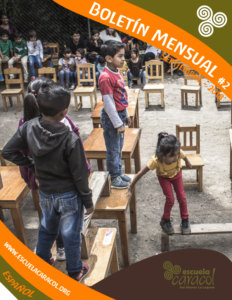On Waldorf Schools around the globe, one of the many artistic disciplines integrated on a different way to each class is theatre.
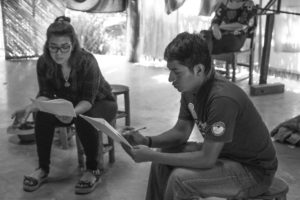
Starting from kindergarten, as a part of the weekly rhythm during specific moments, children have the experience of participating together with their teachers using puppets; and of playing different roles from the fairy tales listened during class.
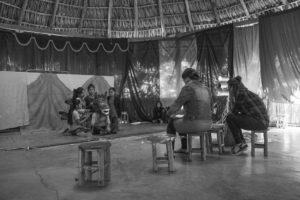
And altho the kindergarten experience is quite different from the one with elementary and high school, it is a small step to what will be, in the future, the staging of stories related to the curricula studied at the time. These theatre plays variate depending on the age and come as a result of the development of our students.
These theatre plays are picked to complement the stories told during school year; so, they go hand to hand with the curricula and with the nurturing needs of each of the students need according the development stage he or she might be at the time.
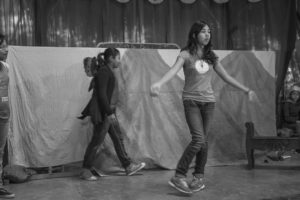
I can clearly remember the first play I staged at Escuela Caracol, it was an amazing experience to adapt a play about Nordic Mythology that had been narrated in fourth grade class. And so, during elementary years we’ll begin by staging small plays about fairy tales; after that, the Fables, Hebrew stories, Saints and Heroes, Nordic Mythology, Local Mythology; until reaching fifth grade, where the plays are meant to represent an historical stage of one of the main civilizations studied in the classroom (India, Mesopotamia, Persia, Egypt, Etc.), but the traditionally picked is Greece; on sixth grade, it should be a play related with Rome or the Medieval period. At Escuela Caracol, we have seen staged many theater plays, where the most important part has always been the teamwork, the joy of doing something as a team and individually; and, of course, the cheers of the audience is always well received.
Working with theatre on the classroom brings many advantages, among them: emotional security, diction, focus, memory, team work and imagination. During the preparation of a play there are a lot of aspects of each of the students temperament that can be worked on; when children perform a part they are also playing, and this is the funniest part of the whole experience, they get the courage to do things that, because of their shyness, they wouldn’t do other way.
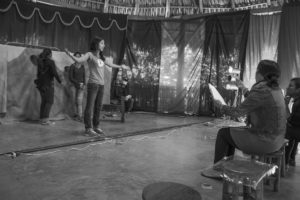
Teachers should be really aware when picking the parts, to get a sanguine, for example, acting as a melancholic. Socially this is really important, because, even when it is not done in a conscious way, in a future it will help comprehend and feel in a better way the other person in front of him.
Theatre becomes a perfect tool when working a second language, once again, interpreting the part of someone else, will help lose the fear of speaking in another language.
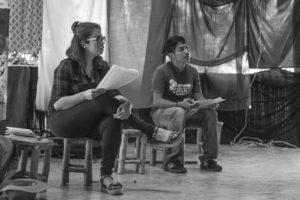
Differentiating between theatre plays produced in a more professional way, on huge sceneries, theater rooms, where the most important part is the final presentation and the applause of the audience; and Waldorf theatre, these are not the most important, it is the experience of teachers and students, the teamwork, the enjoying and complementing what was received in the classroom, beside all we have mentioned. While setting the costumes and scenery, parents integrate, and make of these tasks more complete and fulfilled.
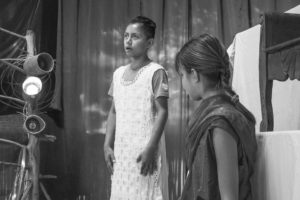
During Escuela Caracol History, theatre has been really important; considering the place where we are, perhaps, this will be the only opportunity students and their families will have to experience this tradition that fills the community with joy and excitement each and every time we see what our different groups have done.
Andrea Arrivillaga Hurtado

